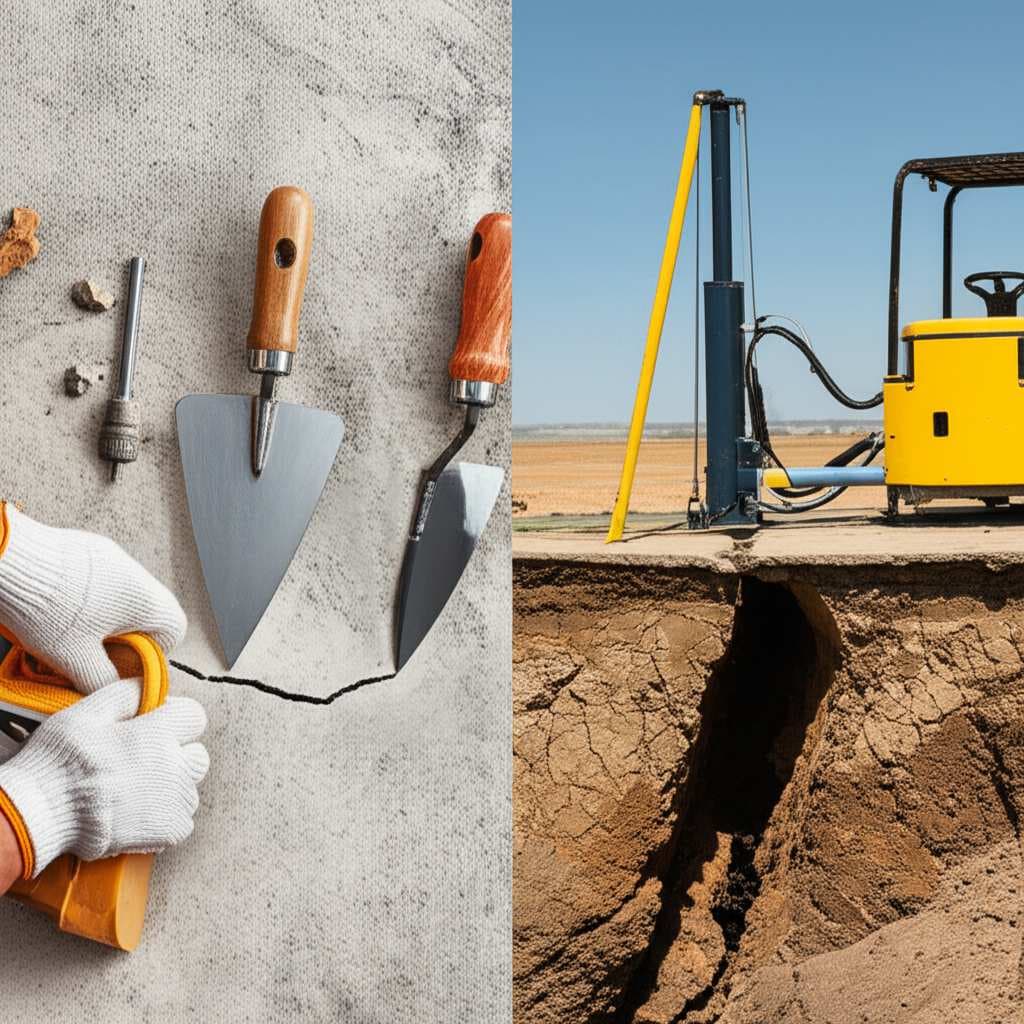DIY Foundation Crack Fixes Under $400 Compared to $8,000 Professional Repairs
Foundation cracks vary widely in severity, from minor cosmetic flaws to critical structural threats. The cost to address them can be as low as $400 with a do-it-yourself approach or climb to $8,000 or more when professional intervention is necessary. Understanding the nature of the damage, identifying when you can handle repairs yourself, and recognizing when to call in experts will help safeguard your home and keep expenses in check.
Breaking Down the Costs
- DIY solutions: Expect to spend between $50 and $400 on materials like epoxy or polyurethane kits.
- Professional services: Costs typically range from $2,000 to $8,000, depending on the extent of damage and repair complexity.
- Major cost factors: The severity of the crack, the chosen repair method, labor rates, and the need for structural reinforcement all influence the final price.
Key Takeaways for Homeowners
- Hairline cracks, often superficial, can usually be managed with affordable sealing kits available at hardware stores.
- Wider or expanding cracks may indicate foundation movement, a problem that often requires advanced structural solutions.
- Professional repair costs escalate significantly if the job involves excavation, underpinning, or installing support piers.
- Neglecting cracks can result in water infiltration, uneven flooring, and even safety hazards over time.
Repair Costs by Crack Severity
Minor Hairline Cracks
For small, non-threatening cracks, do-it-yourself materials cost between $50 and $150. These are typically surface-level issues that require simple sealing to prevent moisture entry. A basic epoxy kit, for instance, can effectively seal a hairline crack in a basement wall, provided there are no signs of ongoing movement.
Moderate Cracks
Cracks of moderate size might cost $200 to $400 to address with sealants or patching compounds. While a homeowner can apply these solutions, they may not halt underlying structural shifts. If you notice the crack widening after sealing, it is a sign to seek professional evaluation.
Severe Structural Damage
When cracks are wide, jagged, or accompanied by wall bowing, professional repairs are often unavoidable. Solutions like installing steel piers, carbon fiber reinforcements, or using hydraulic jacks can range from $4,000 to $8,000. The higher end of this spectrum applies to homes requiring extensive foundation stabilization.
Comparing Contractor Fees to DIY Efforts
Hiring a foundation specialist involves labor, specialized equipment, and often a warranty on the work performed. Contractors typically charge $100 to $200 per hour, with additional costs for materials, depending on the job's complexity. In contrast, do-it-yourself kits cover only the product cost, leaving the labor and risk of improper application entirely to you, without any guarantee of lasting results.
Hidden Costs to Consider
- Permits and regulations: Structural repairs may require local permits, adding $100 to $500 to the total.
- Soil challenges: Homes on expansive or unstable soil often need deeper stabilization methods, increasing expenses.
- Access limitations: If your home has restricted access for heavy equipment, excavation costs can rise.
- Moisture issues: Addressing related problems, such as poor drainage or waterproofing, can add thousands to the project.
Strategies to Reduce Expenses
Acting promptly on small cracks with a do-it-yourself kit can prevent them from worsening and save significant costs later. Improving drainage around your property, such as ensuring gutters direct water away from the foundation, helps minimize soil movement. When professional help is needed, obtain multiple quotes to compare approaches and pricing. If funds are tight, inquire about partial repairs or phased work to spread out the financial burden.
Impact on Home Value
A stable foundation is crucial to maintaining your property's market value. Potential buyers often view foundation issues with caution, and unaddressed cracks can lead to lower offers or failed sales. Investing in professional repairs can recoup 70 to 80 percent of the cost during resale, as they reassure buyers of the home's structural integrity and safety.
Deciding Between DIY and Professional Help
Tackling repairs yourself is feasible for narrow, stable cracks that show no signs of growth, wall movement, or floor unevenness. Sealants can effectively block water and improve appearance in these cases. However, if cracks expand over time, doors begin to stick, or floors slope noticeably, hiring a professional becomes the safer choice. While the upfront cost is higher, experts address the root cause rather than merely masking the surface damage.
How Costs Were Calculated
The figures presented reflect averages drawn from contractor estimates, material pricing at major hardware retailers, and data from homeowner-reported projects. These numbers provide a realistic baseline, though individual circumstances, such as location and home design, may lead to variations.
Frequently Asked Questions
How much do foundation crack repairs typically cost?
Do-it-yourself kits are generally under $400, while professional services average between $2,000 and $8,000.
Is it possible to fix large cracks without professional help?
Large cracks usually require a contractor, as do-it-yourself sealants address only surface issues and not underlying structural problems.
Do foundation repairs boost property value?
Yes, they enhance structural safety and increase buyer confidence, often leading to better resale outcomes.
Are permits necessary for foundation work?
Minor sealing typically does not require permits, but structural repairs often do, depending on local regulations.
Protecting Your Home Long-Term
Addressing foundation cracks promptly shields your property from escalating damage, such as water intrusion or structural instability. Begin with a thorough inspection to assess the severity of the issue. Opt for do-it-yourself solutions for minor cosmetic fixes, but do not hesitate to engage professionals when stability is in question. Taking these steps ensures your home remains a secure and valuable asset for years to come.






